Research activities of the Centre in large involve student participation at various motivational grant programmes as well as organisation of informal seminars and workshops. Students are encouraged to participate at international conferences and to get involved in solving research grants. Students and researchers of the Centre were involved in the following activities in 2020:
In December 2020, Debora Lančová and Andrea Kotrlová attended the Supermassive Black Holes online conference organized by the Department of Astronomy, Universidad de Concepción, Chile. The event was initially planned to take place in Pucón (Chile) just before a total solar eclipse visible from Pucón. But due to the global COVID-19 pandemic, it was held online via Zoom platform.
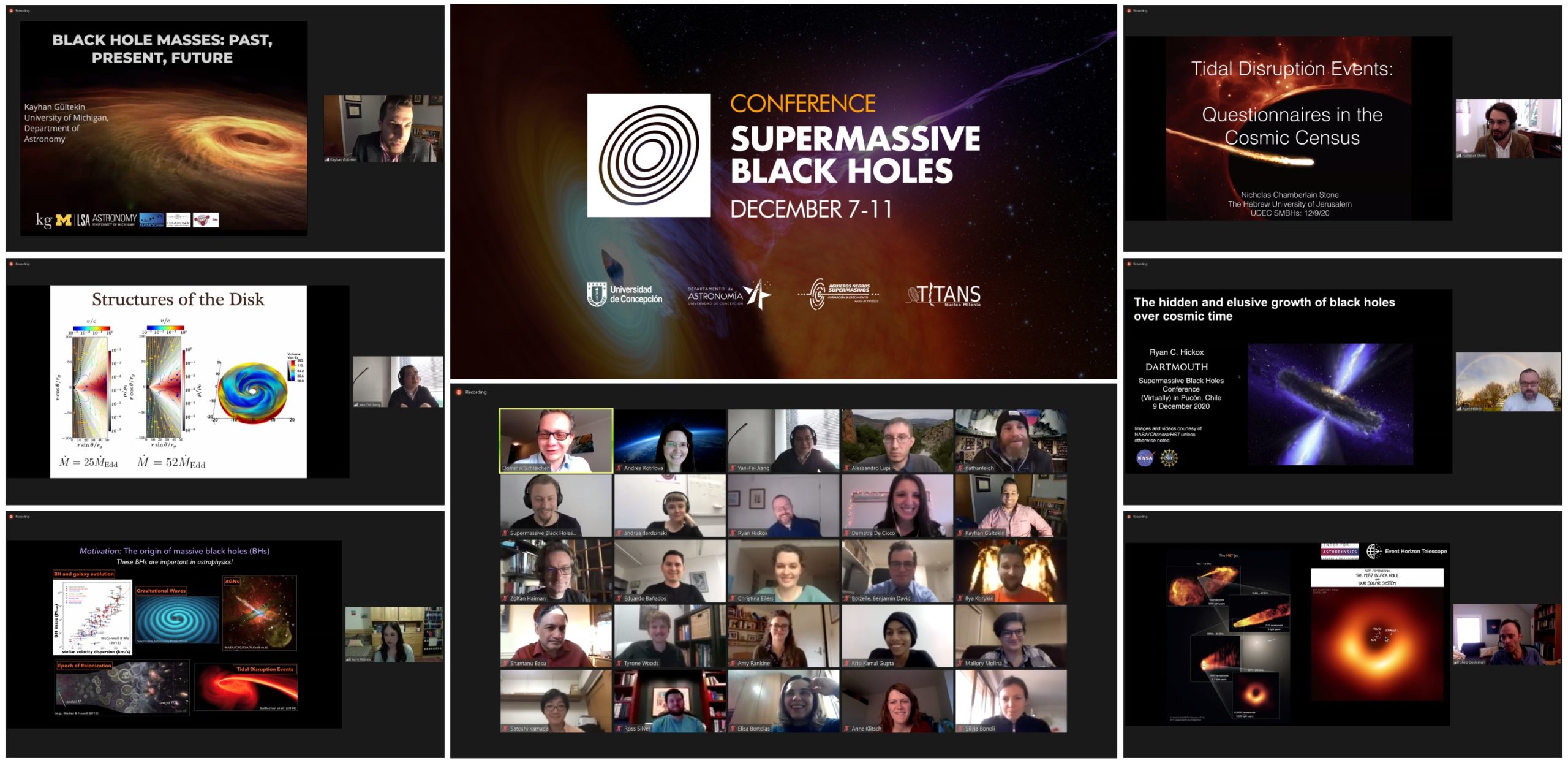
The conference highlighted the current and future science related to the formation, growth and evolution of supermassive black holes. Among the invited speakers was Sheperd Doeleman, the founding director of the Event Horizon Telescope (EHT) project, who gave a talk about the latest results and future plans of the EHT.
The agenda of the meeting with links to view all the presentations can be found on the conference website. The official conference photo is available here.
In November 2020, Andrea Kotrlová attended the Exoplanet Demographics “Piecing Together the Complete Puzzle of Planet Populations” online conference hosted by the NASA Exoplanet Science Institute, IPAC/Caltech, USA. This virtual meeting involved more than 650 participants from around the world to learn from fellow experts on the big overarching questions in exoplanet science.
The exoplanet field has transitioned rapidly from discovery to characterization. As the numbers of known exoplanets grows, our ability to discern and understand the underlying populations and planets that produce the observed distributions we see also grows. This conference brought together community members working both theoretically and observationally on understanding exoplanet demographics.
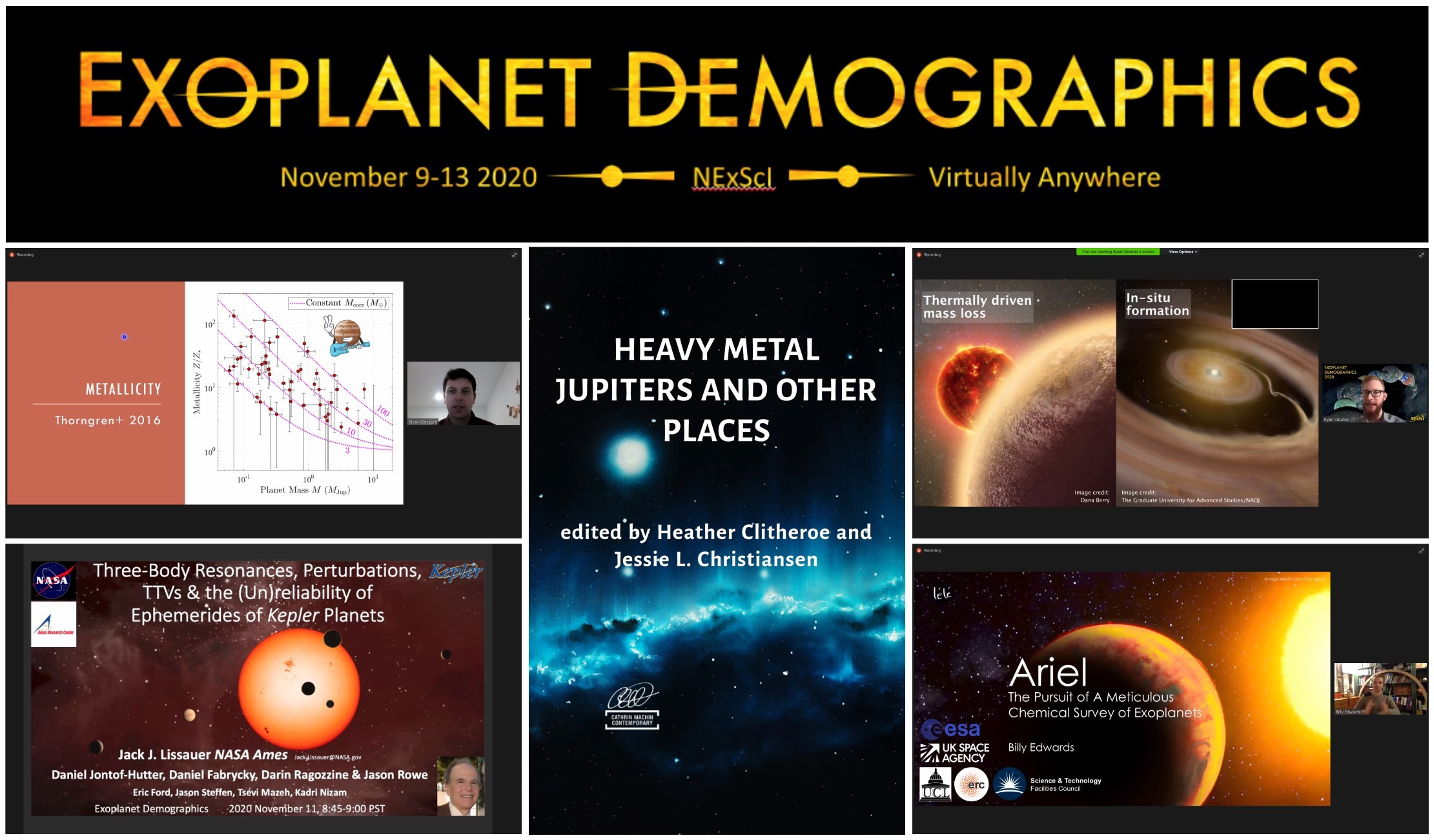
One unique piece of this conference was the open inclusion of science fiction authors, poets, and artists. A collaboration between Dr. Jessie Christiansen and one editor/author, Heather Clitheroe, produced the “Heavy Metal Jupiters and Other Places” series. These anthologies are collections of micro-fiction stories, poems, and artwork written by professional science fiction writers and inspired by scientists and their research as presented in their conference abstracts. This was perhaps the first STEAM (Science, Technology, Engineering, Arts and Math) collaborations done focusing on exoplanets and was a very enjoyable addition to the conference itself. All five issues (one for each conference day) are now available to everyone to enjoy here.
The agenda of the conference with links to view all the presentations can be found on the conference website.
The series of the annual RAGtime workshops has been held at Institute of Physics in Opava by the Relativistic Astrophysics Group (RAG) since 1999. Its scientific scope is devoted to current problems of relativistic astrophysics mainly focused on the physics of black holes and neutron stars. The workshop is attended by multiple experts in the field and allows for many valuable discussions and interactions between the participants.
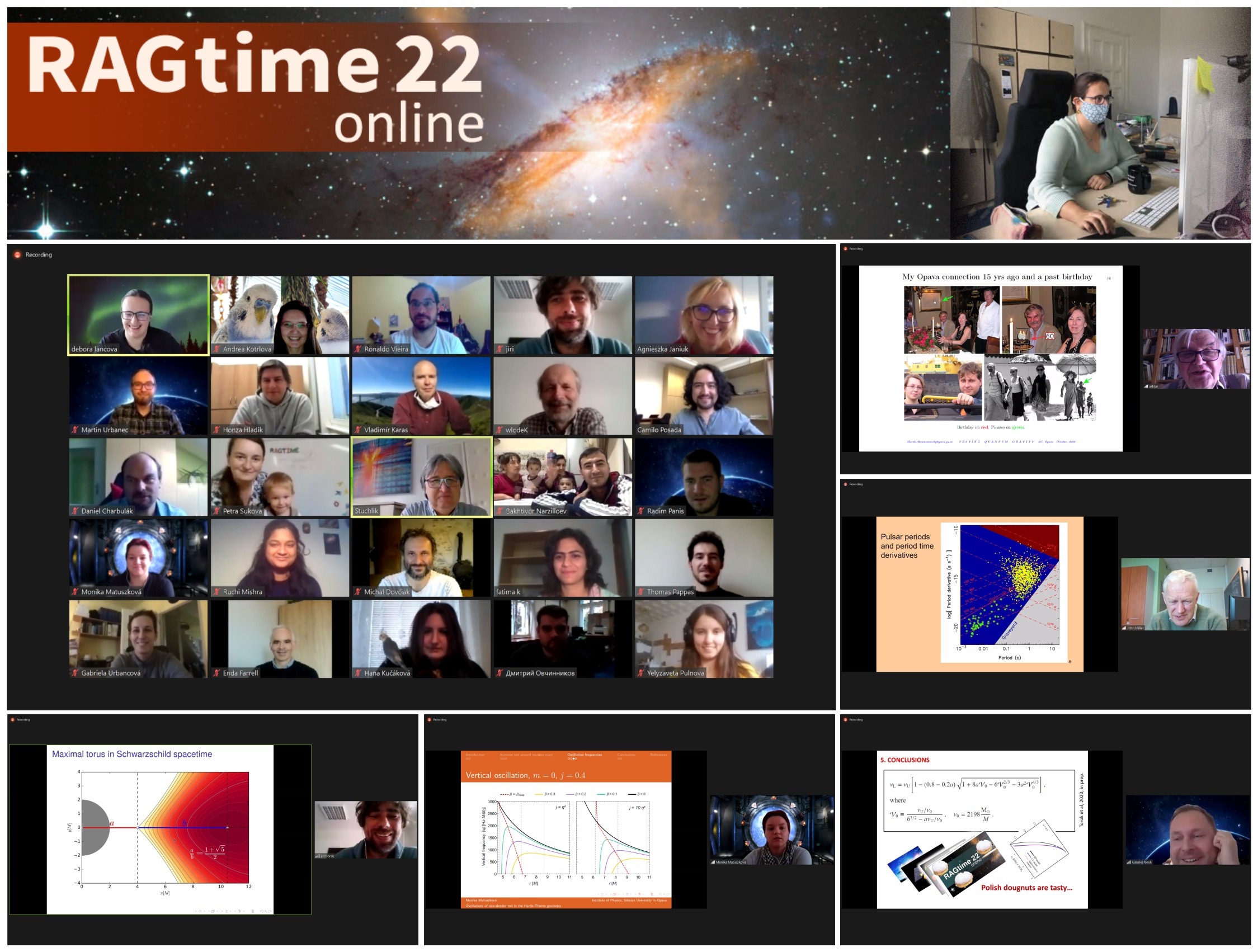
Due to the COVID-19 restrictions, the 22nd RAGtime workshop was held online via Zoom platform from 19th to 23rd of October, 2020. The workshop had more than 90 registered participants from all around the globe, as it can be seen from this map created by Debora Lančová.
This year, the workshop was especially dedicated to Professor Zdeněk Stuchlík and his work as a celebration of his 70th birthday.

The videos from the RAGtime 22 meeting are available online, on the YouTube channel of the Institute of Physics in Opava. Presentation slides are uploaded at the website of the meeting here and the photogallery is available here.
Our Contributions
Talks
In September 2020, Andrea Kotrlová attended the IWARA 2020 Video Conference. IWARA, acronym for International Workshop on Astronomy and Relativistic Astrophysics, is a series of meetings gathering scientists working on astronomy, cosmology, relativistic astrophysics, gravitation, astroparticle physics, nuclear physics, quantum relativistic field theory and related fields.
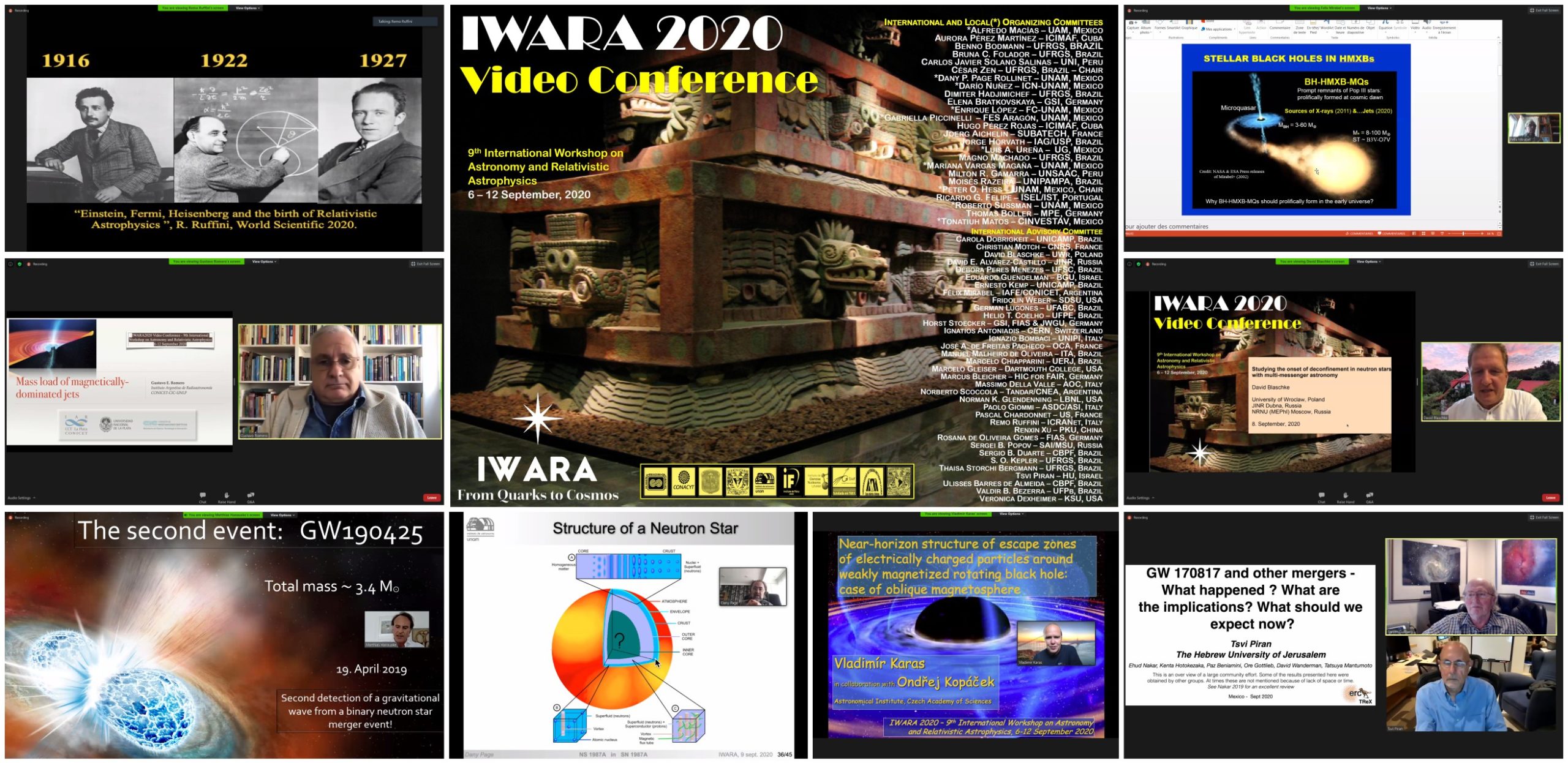
In light of the COVID-19 pandemic, the 9th event IWARA 2020 was changed to fully virtual meeting that was held via Zoom platform from 6 to 12 of September, 2020. The workshop had 382 registered participants from 41 countries across the globe and consisted of live plenary talks, video-recorded talks, parallel sessions discussions and presentations, and virtual posters sessions.
Among the plenary speakers were Remo Ruffini, Vladimír Karas, Felix Mirabel, Steven Gullberg, Gustavo Romero, Patrick Slane, David Blaschke, Matthias Hanauske, Dany Page, Horst Stöcker, Tsvi Piran, Jorge Rueda, Dorota Rosińska, Thomas Boller, Peter O. Hess, Mariana Vargas and many others.

More information on the workshop, including the agenda and links to view all the presentations and talks, can be found on the workshop website, on the IWARA Platform and on the IWARA YouTube Channel.
You can “attend” the workshop here:
E-certificate of attendance at the IWARA 2020 Video Conference is available here.
In 2009 ICRANet (International Center for Relativistic Astrophysics Network) initiated a series of international meetings in Minsk, Belarus, celebrating Yakov Borisovich Zeldovich, the famous chemist, nuclear physicist, cosmologist and astrophysicist, born in 1914 in Minsk and known as the founder of the Russian school of relativistic astrophysics.
In September 2020, Kateřina Klimovičová and Andrea Kotrlová attended the Fourth Zeldovich virtual meeting – An international conference in honor of Ya. B. Zeldovich. The meeting was initially planned for April 2020 in Minsk, Belarus. But due to the global COVID-19 pandemic, it was held online via GoToMeeting platform. The conference was jointly organized by ICRANet and the National Academy of Sciences of Belarus.
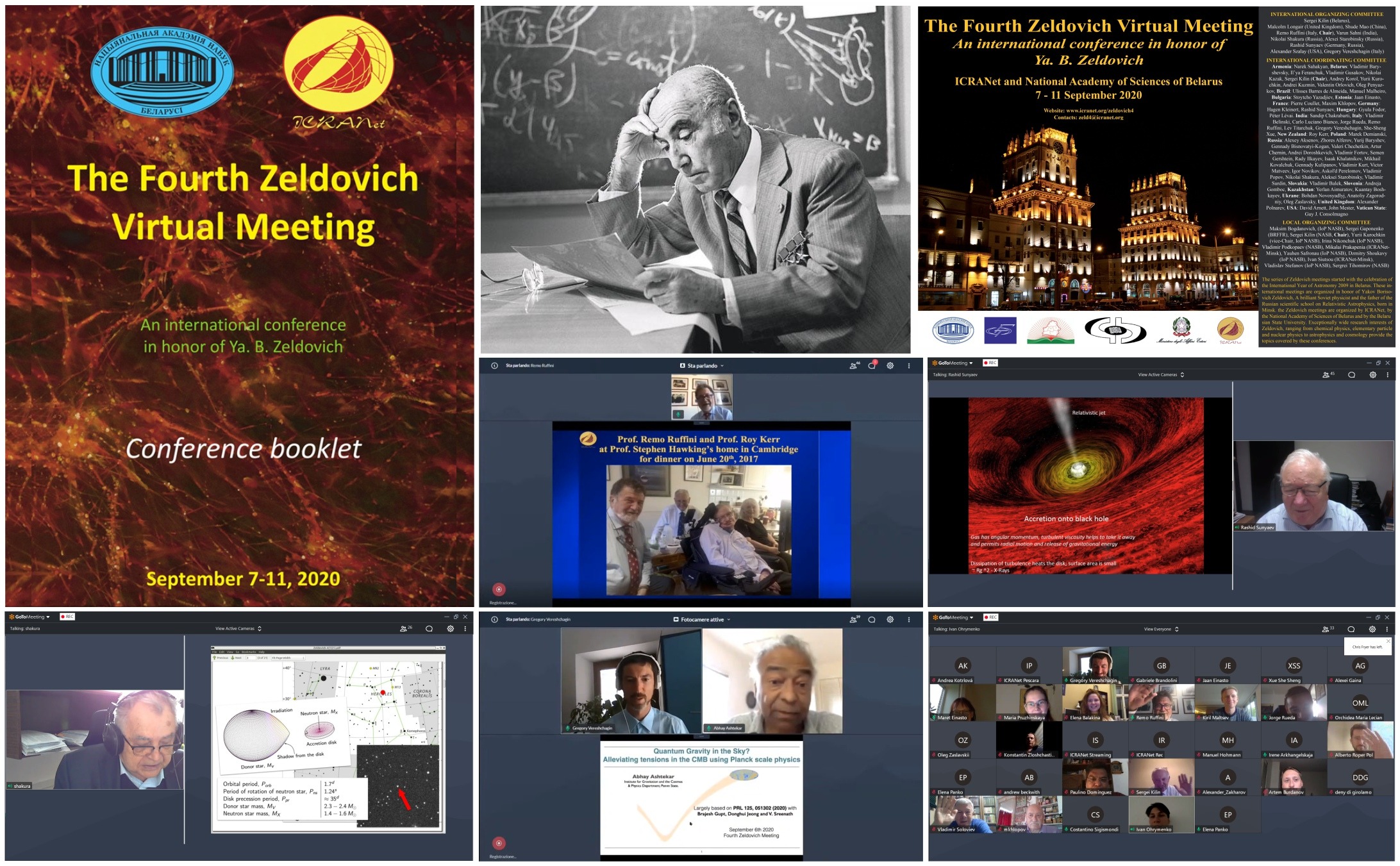
New scientific results from X-ray missions such as SRG and eROSITA, as well as black hole observations from GRAVITY collaboration, new results from IceCube, MAGIC and other instruments and observatories were presented, along with advances in theoretical understanding of astrophysical systems such as black holes, neutron stars, clusters of galaxies and dark matter.
Many of the presenters were close collaborators of Ya. B. Zeldovich and are internationally renowned scientists, e.g., Nikolai Shakura, Alexei Starobinsky or Jaan Einasto. Among the invited speakers were also Remo Ruffini, Rashid Sunyaev, Abhay Ashtekar, Felix Mirabel, Stefan Gillessen, Piero Rosati, Andrea Merloni, Chris Fryer, Jorge Rueda and many others.
The videos from the Fourth Zeldovich meeting are fully online, at the ICRANet YouTube channel. Presentation slides are uploaded at the website of the meeting here. Conference Booklet with the full program and abstracts is available via this link.
During summer 2020 Andrea Kotrlová attended the 2020 ngVLA Summer Short Talk Series, a cycle of short science online talks via Zoom that took place weekly over the summer, each Thursday from June to September 2020. It was organized by the Next Generation Very Large Array (ngVLA) Science Advisory Council (SAC) and supported by the National Radio Astronomy Observatory (NRAO). The goal of this initiative is to highlight and discuss timely open science questions and their connection to present and future observing facilities at all wavelengths (e.g., ALMA, JWST, SKA, ngVLA, the ELTs, Rubin Observatory, or a proposed NASA observatory).
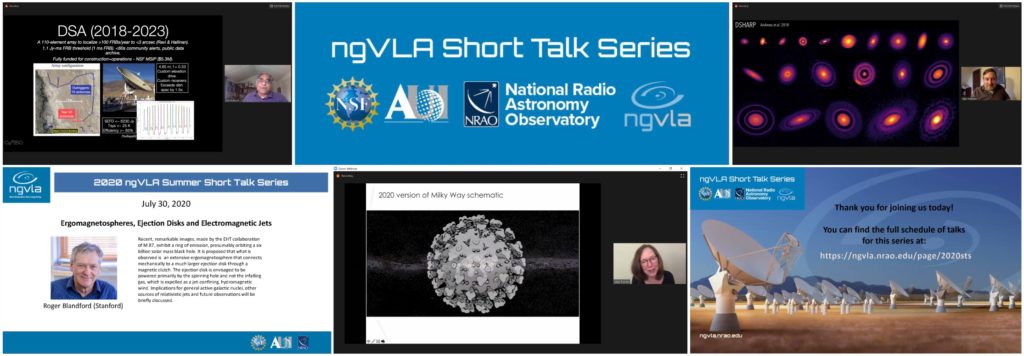
Talks were 20-25 minutes long and were targeted to a general scientific audience. Among the presenters were Roger Blandford (Stanford/KIPAC), Shri Kulkarni (Caltech), Tom Maccarone (Texas Tech) and many others. The talks were followed by a moderated Q&A session with questions from the audience, which lasted another 20 minutes.
Talk schedule and videos of all the talks are available here.
In July 2020, Andrea Kotrlová participated at the 2020 Sagan Exoplanet Summer Virtual Workshop hosted by the NASA Exoplanet Science Institute (NExScI), IPAC/Caltech, Pasadena, USA.
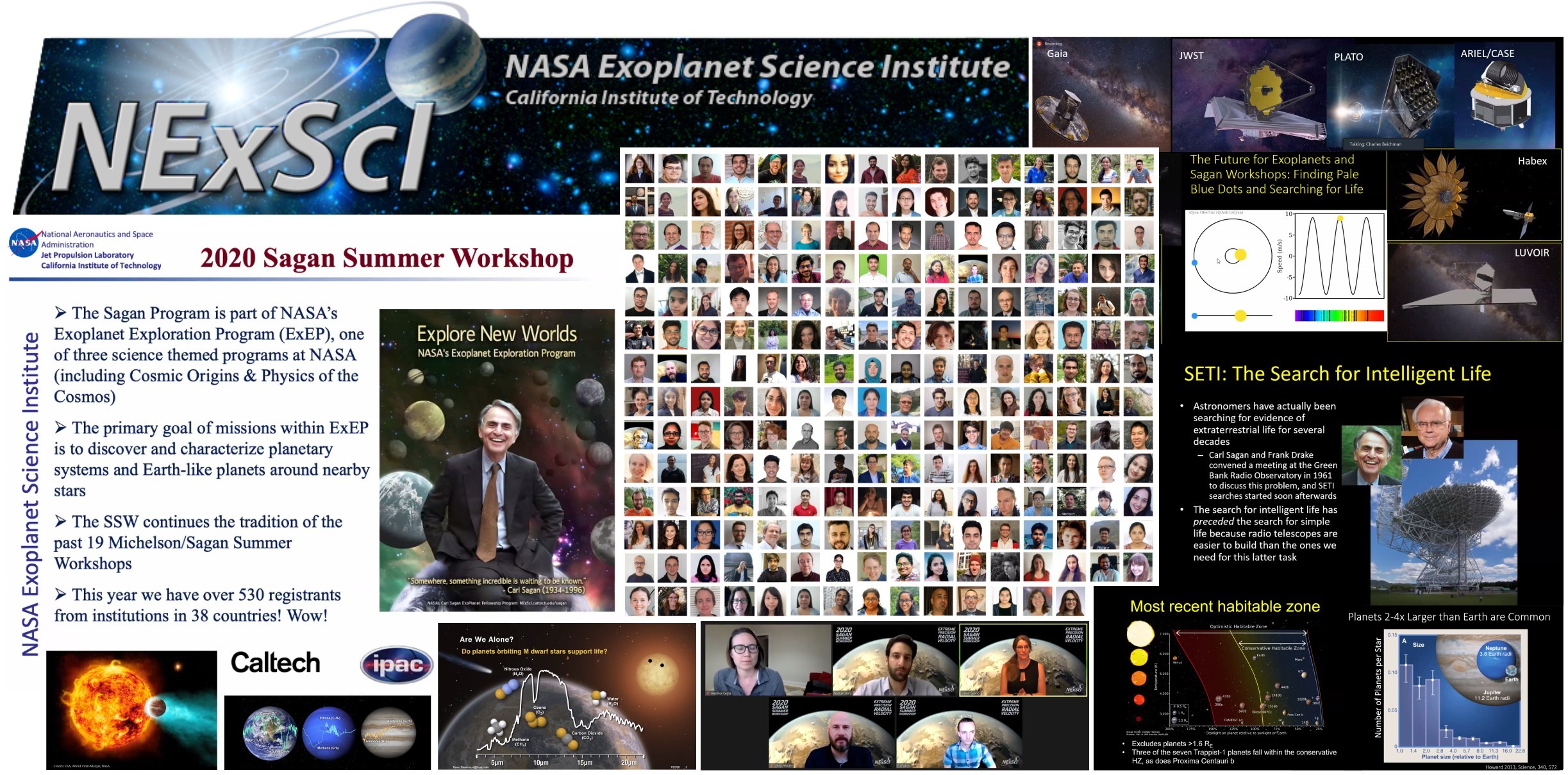
The Sagan Summer Workshops are held annually and provide opportunities for students, postdocs, and researchers to learn about the engineering and scientific application of exoplanet-related techniques used in NASA’s Exoplanet Exploration Program. This year the workshop focused on the technique of Extreme Precision Radial Velocity for finding and characterizing exoplanets. The workshop had 566 registered participants from more than 40 countries around the world.

Due to the global COVID-19 pandemic, the workshop was held online with pre-recorded talks available on the Sagan Exoplanet Workshop YouTube channel, followed by a live webinar via Zoom on July 20-24, 2020. The workshop included lecture presentations, panel discussions, hands-on sessions working with real radial velocity data from DACE platform (Data & Analysis Center for Exoplanets), a virtual poster session, and the opportunity to meet with the speakers in smaller Zoom meetings on the last day.
E-certificate of attendance at the 2020 Sagan Summer Workshop is available here and the class photo here. The agenda of the workshop with links to view all the presentations can be found here.
In July 2020, Kateřina Klimovičová, Andrea Kotrlová, Gabriela Urbancová and Martin Urbanec attended the virtual mini-conference COEPMME (Compact Objects and Energetic Phenomena in the Multi-Messenger Era) hosted at NRAO Headquarters, Charlottesville, Virginia, USA. The National Radio Astronomy Observatory (NRAO) is a facility of the National Science Foundation (NSF) operated under cooperative agreement by Associated Universities, Inc. (AUI).
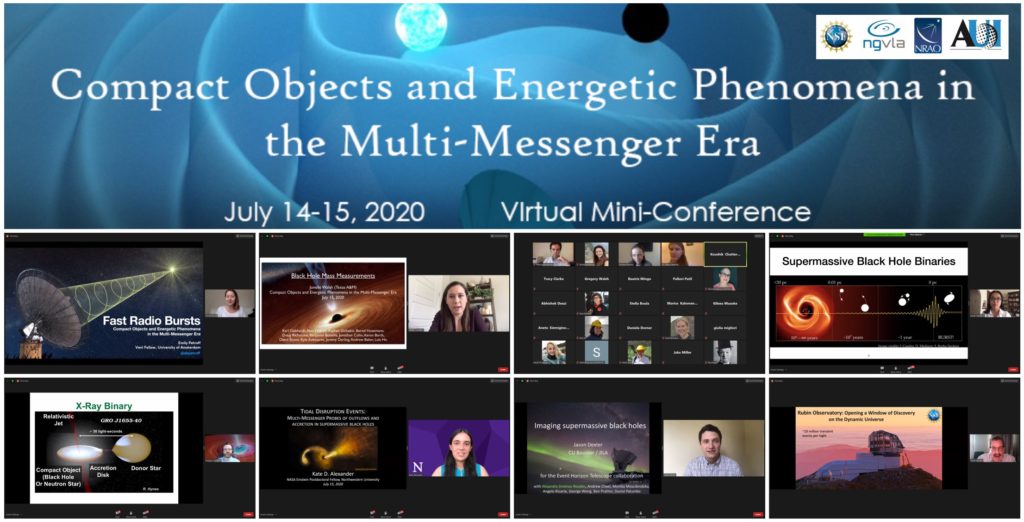
The meeting emphasized the current state of research on compact objects that leverages on multi-messenger information. The meeting was also forward-looking to help planners define an interoperable suite of multi-messenger facilities for the 2030s and beyond. An example suite might include SKA, ngVLA, ELTs, Rubin Observatory, Cosmic Explorer/Einstein Telescope, LISA, and IceCube, as well as future X-ray missions.
Videos of all the talks are available here.
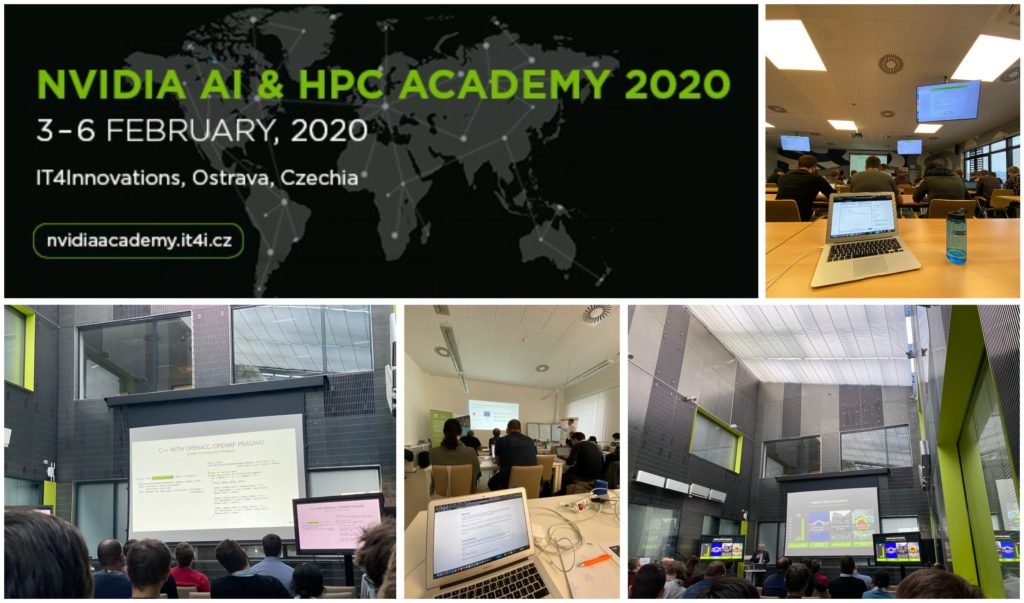
In February 2020, Debora Lančová participated at the NVIDIA AI & HPC ACADEMY 2020 to learn more about Artificial Intelligence and High Performance Computing development for NVIDIA GPUs.
Participants of these NVIDIA Deep Learning Institute certified training courses gained practical experiences in deep learning for computer vision by training neural networks and using results to improve performance and capabilities, and in accelerated computing with CUDA C/C++ and OpenACC. The training courses were held in the IT4Innovations National Supercomputing Center, which hosts an NVIDIA DGX-2 system and the new Barbora cluster with V100 GPUs.